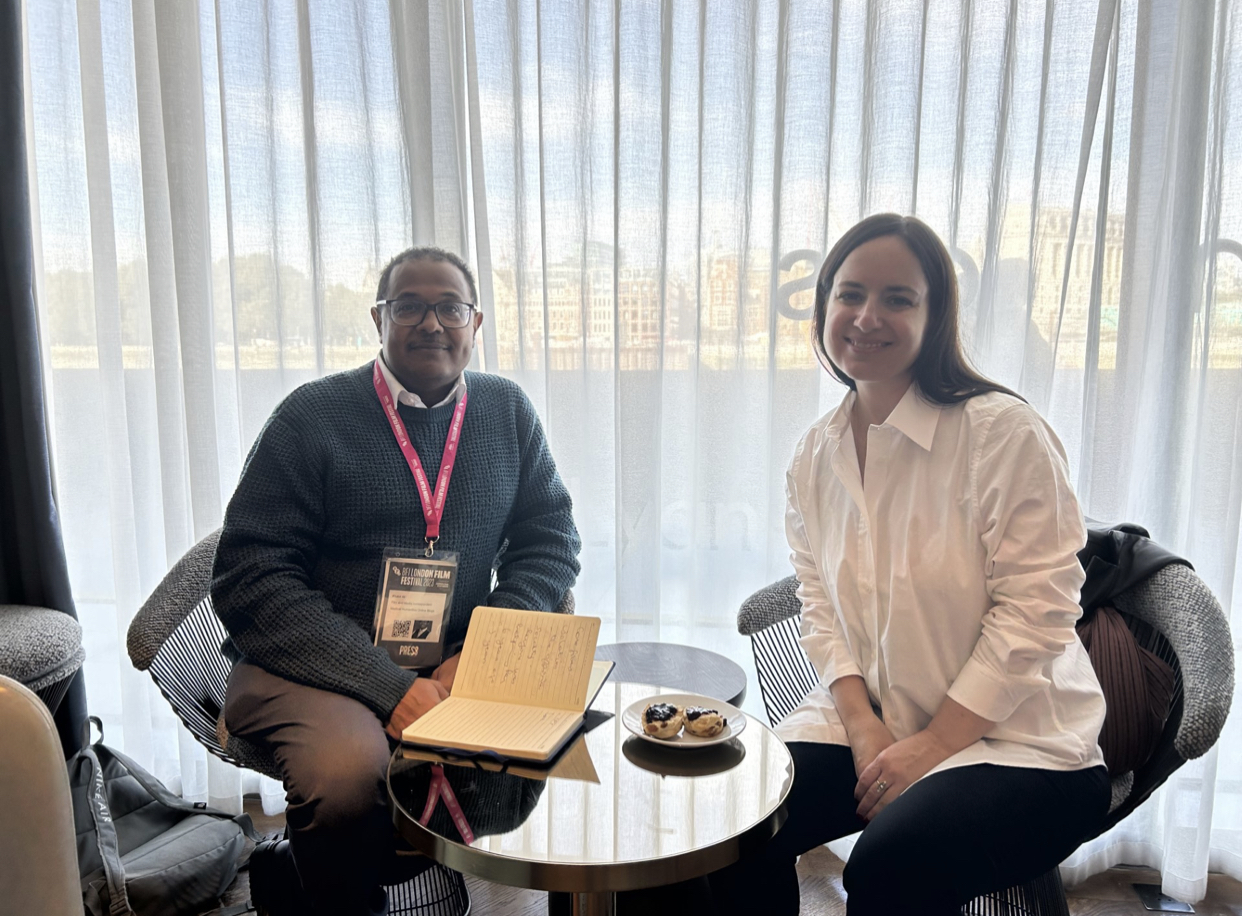The Eternal Memory (La Memoria Infinita) (Maite Alberdi, Chile, 2023), winner of the World Cinema Grand Jury Prize in Documentary Competition at Sundance Film Festival 2023
Review by Khalid Ali, film, and media correspondent
Released in the UK Friday 10th November
Many films portraying dementia focus on the loss of identity of affected individuals, the carers’ burden, or the unrelenting impact on families; of these, The Iron Lady (Phyllida Lloyd, UK, 2011), Amour (Michael Haneke, France, 2012), Still Alice (Richard Glatzer and Wash Westmoreland, USA, 2014), and Vortex (Gaspar Noé, France, 2021) are notable examples. Maite Alberdi, Oscar-nominated Chilean film director, subverts that tradition by portraying the life of Augusto Góngora and his devoted wife Paulina Urrutia, as a love story that defies the affliction of dementia. Before being diagnosed with dementia, Augusto had been a renowned political and cultural reporter who exposed the atrocities of the Pinochet dictatorship. Paulina is an actress who also served as the Minister of Culture and the Arts in Chile from 2006–2010. The film follows the last 6 years of their loving relationship with a background of home videos and archival footage chronicling the socio-political milieu of the Pinochet regime.

By observing Augusto and Paulina’s daily routine, we are introduced to their jointly positive approach to the reality of dementia, an attitude best characterized by a palpable and continuous enjoyment of life. As husband and wife, they are both in the moment when recounting milestone memories of their 23 years as a couple. Their humour and intimacy comprise an essential element of their recipe for well-being. Daily exercises that include walking, stretching, and cycling is a pleasurable feature of their relationship. Such activities are not always a walk in the park, literally or figuratively; Augusto needs constant reminders to cycle in a straight line, but Paulina is content to be his watchguard and companion. Doing almost everything together is their way of experiencing joy for whatever time left. Dancing, touching, or talking maintains their deep emotional connection.
While caring for Augusto, Paulina manages to avoid giving up her career as an actress or otherwise losing her professional identity. Their firm pact of sharing everything remains and thrives. Neither marginalized nor hidden away, Augusto is present at all of Paulina’s plays. Maite Alberdi explains: “I wanted to portray caregivers such as Paulina as people who can remain socially engaged and contributing to society.”
Reflecting on their earlier years, neither one shies away from remembering traumatic events such as the assassination of one of Augusto’s close friends. Reminiscing on both the exultant events they celebrated and the sad history they endured is their way of life. “Without memories, we don’t know who we are.” In the film we see Augusto introducing a book he co-wrote Chile: La Memoria Prohibida (Chile: The Forbidden Memory) at its launch in 1989. Augusto emphatically states “Chileans need to reconstruct their emotional memory to assert their identity and to understand and recover from their collective trauma. As such remembering becomes a brave act of defiance”. To this Alberdi adds: “Paulina was moved by the film and sees it as Augusto’s legacy. His professional and cultural identity is there for generations to come through his book and the film.”
During the height of the Covid pandemic and its necessarily enforced isolation, music, literature, and poetry became their companions. Even when a book chapter proved to be too complex for him to read and analyse, Augusto would smell and touch the book’s cover lovingly, with Paulina actively encouraging that sensory connection.
The challenging aspects of Augusto’s behaviour such as night wandering, perseveration and agitation are all included in this affecting portrait. Paulina’s frustration is apparent but balanced and eased by her unconditional love. The inevitable loss of Augusto’s identity and further physical and cognitive decline are openly acknowledged by Paulina. Maite Alberdi explains that the couple’s decision to marry had been a part of their advance planning, allowing Paulina to have legal rights to make financial and healthcare decisions when the time came that Augusto could no longer make informed choices.
Maite Alberdi has established herself as an ambassador for senior citizens by telling their stories in films such as Tea Time (2014), I’m not from here (2016), and The Mole Agent (2020).[1] Maite comments: “Alzheimer’s disease is a challenge but not a tragedy. The quality of life of couples living with dementia depends largely on how they deal with it. Admittedly socio-economic circumstances matter: Paulina was able to afford keeping Augusto at home by privately paying for carers to help her meet his needs. Both found other ways of communicating. Keeping that equilibrium and balance of cherishing and rejoicing the good moments and managing the bad ones in the best way possible was their strength. Overall, the good can be more than the bad by tapping into their life journey and store of happy memories. Their life was one long act of love and the years they lived with dementia together was an affirmation that love can be a sanctuary when dementia comes.”
Maite concludes: “If we show these stories, talk about them, we can dispel some of the fear around ageing. In dementia maybe the facts are lost, but the feelings stay forever, in Augusto’s case- his love for Paulina and his books, and his hatred for the Pinochet dictatorship.”
References
[1] The Mole agent film review, https://blogs.bmj.com/medical-humanities/2021/02/01/growing-old-behind-closed-doors-film-review/